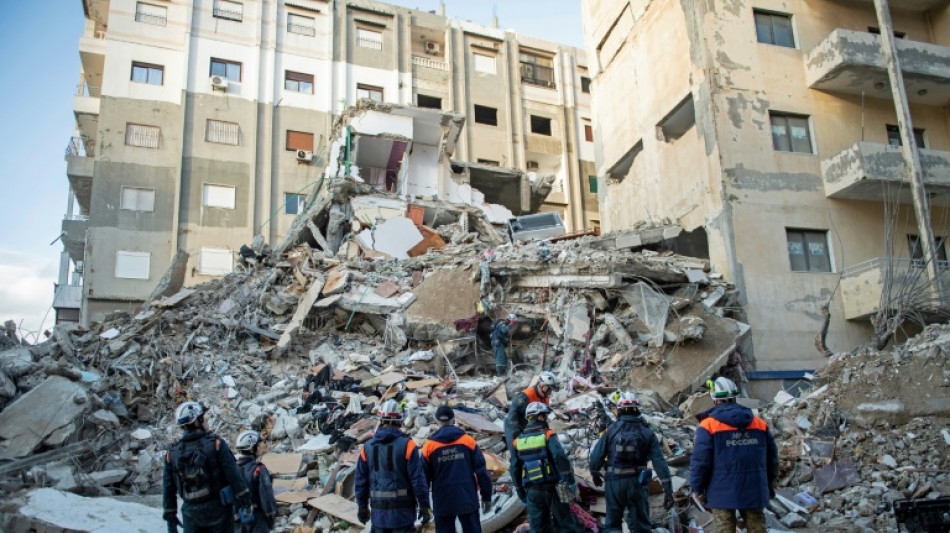
-
 Scandic Trust Group strengthens sales network with First Idea Consultant
Scandic Trust Group strengthens sales network with First Idea Consultant
-
MotoGP legend Agostini admires Marc Marquez's 'desire to win'

-
 Nepal searches for avalanche victims
Nepal searches for avalanche victims
-
Hezbollah rejects any negotiations between Lebanon and Israel

-
 Chapman blitz leads Black Caps to tight T20 victory over West Indies
Chapman blitz leads Black Caps to tight T20 victory over West Indies
-
France urges EU to sanction Shein platform

-
 France opt for Le Garrec as Dupont replacement for South Africa Test
France opt for Le Garrec as Dupont replacement for South Africa Test
-
Turmoil in tiaras at Miss Universe pageant in Thailand

-
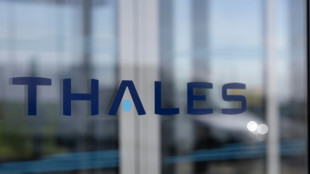 Probe into Thales defence group looking at Indonesian contract
Probe into Thales defence group looking at Indonesian contract
-
US to cancel flights as longest govt shutdown drags on
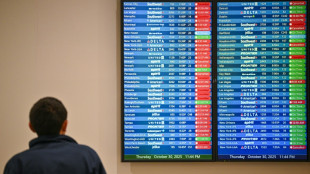
-
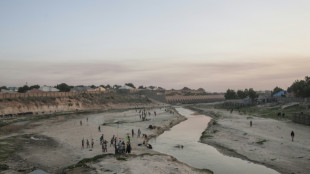 Home in Nigeria, ex-refugees find themselves in a war zone
Home in Nigeria, ex-refugees find themselves in a war zone
-
Doncic's Lakers hold off Wembanyama's Spurs, Blazers silence Thunder

-
 For Turkey's LGBTQ community, draft law sparks existential alarm
For Turkey's LGBTQ community, draft law sparks existential alarm
-
Musk's $1 trillion pay package to face Tesla shareholder vote

-
 Tonga rugby league star out of intensive care after seizure
Tonga rugby league star out of intensive care after seizure
-
Argentine ex-president Kirchner goes on trial in new corruption case

-
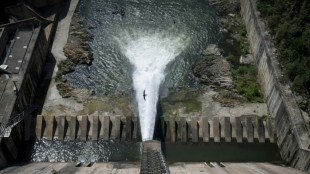 Dams, housing, pensions: Franco disinformation flourishes online
Dams, housing, pensions: Franco disinformation flourishes online
-
Endo returns as Japan look to build on Brazil win

-
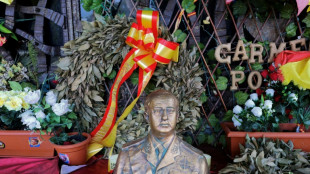 Franco captivates young Spaniards 50 years after death
Franco captivates young Spaniards 50 years after death
-
German steel industry girds for uncertain future
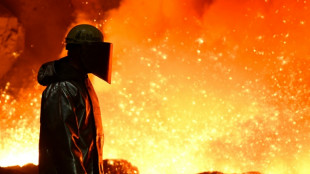
-
 IPL champions Bengaluru could be sold for 'as much as $2 billion'
IPL champions Bengaluru could be sold for 'as much as $2 billion'
-
Budget impasse threatens Belgium's ruling coalition

-
 New Zealand ex-top cop admits to having material showing child abuse, bestiality
New Zealand ex-top cop admits to having material showing child abuse, bestiality
-
BoE set for finely balanced pre-budget rate call

-
 Australian kingpin obtains shorter sentence over drug charge
Australian kingpin obtains shorter sentence over drug charge
-
Weatherald's unenviable Ashes task: fill giant hole at top left by Warner

-
 Ovechkin first to score 900 NHL goals as Capitals beat Blues
Ovechkin first to score 900 NHL goals as Capitals beat Blues
-
On Mexico City's streets, vendors fight to make it to World Cup
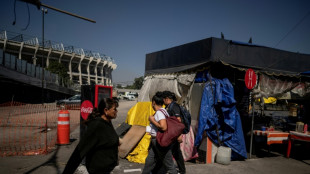
-
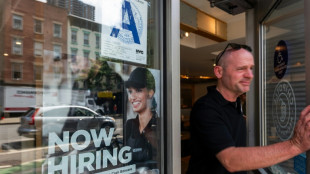 Asian markets bounce from selloff as US jobs beat forecasts
Asian markets bounce from selloff as US jobs beat forecasts
-
Philippine death toll tops 140 as typhoon heads towards Vietnam
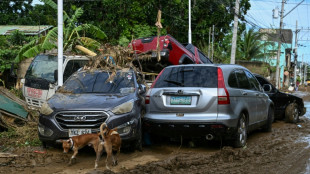
-
 Kyrgios targets 'miracle' Australian Open return after knee improves
Kyrgios targets 'miracle' Australian Open return after knee improves
-
'AI president': Trump deepfakes glorify himself, trash rivals

-
 Belgium probes drone sightings after flights halted overnight
Belgium probes drone sightings after flights halted overnight
-
Five things to know about 'forest COP' host city Belem

-
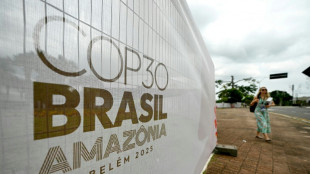 World leaders to rally climate fight ahead of Amazon summit
World leaders to rally climate fight ahead of Amazon summit
-
Engine fell off US cargo plane before deadly crash: officials

-
 Mexican leader calls for tougher sexual harassment laws after attack
Mexican leader calls for tougher sexual harassment laws after attack
-
Meghan Markle set for big screen return: reports

-
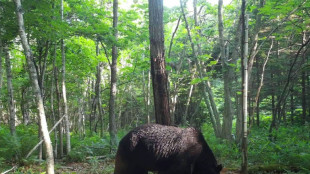 Japan deploys troops after wave of deadly bear attacks
Japan deploys troops after wave of deadly bear attacks
-
FIFA announce new peace prize to be awarded at World Cup draw in Washington

-
 Australia's Cummins hints at return for second Ashes Test
Australia's Cummins hints at return for second Ashes Test
-
Boeing settles with one plaintiff in 737 MAX crash trial
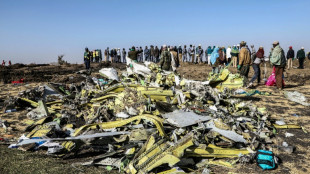
-
 Man City win as Inter stay perfect, Barca held in Champions League
Man City win as Inter stay perfect, Barca held in Champions League
-
French superstar DJ Snake wants new album to 'build bridges'

-
 Barca rescue draw at Club Brugge in six-goal thriller
Barca rescue draw at Club Brugge in six-goal thriller
-
Foden hits top form as Man City thrash Dortmund

-
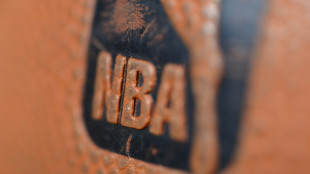 NBA officials brief Congress committee over gambling probe
NBA officials brief Congress committee over gambling probe
-
Inter beat Kairat Almaty to maintain Champions League perfection

-
 Newcastle sink Bilbao to extend Champions League winning run
Newcastle sink Bilbao to extend Champions League winning run
-
Wall Street stocks rebound after positive jobs data
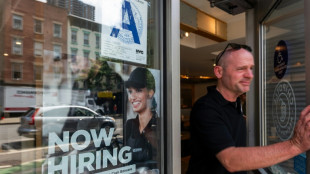

Why first 72 hours are crucial for Turkey-Syria quake rescues
Time was running out for survivors buried in the rubble of the earthquake in Turkey and Syria, as search efforts near the crucial 72-hour mark, a rescue response expert said Wednesday.
More than 90 percent of earthquake survivors are rescued within the first three days, said Ilan Kelman, a professor of disasters and health at University College London.
But that number can vary significantly depending on the weather, aftershocks and how quickly rescue teams and equipment can arrive at the scene -- all factors which are currently going against efforts in Turkey and Syria.
Over 11,200 people have been killed and thousands more injured after the earthquake struck southeastern Turkey and neighbouring Syria at 04:17 am (0117 GMT) on Monday.
With the 72-hour window closing early Thursday morning, Kelman told AFP why this timeframe is so important.
- Injuries, temperature, water -
"Generally, earthquakes do not kill people, collapsing infrastructure kills people," said Kelman, who has published research on quake rescue responses.
The most pressing factor is getting medical attention to people crushed under collapsed buildings before "their bodies fail" or they bleed out, he said.
Weather is also a key factor, and "it is completely against us" in Turkey and Syria, Kelman said.
The quake-hit regions have suffered through freezing temperatures as well as rain and snow since Monday.
"This very sadly means that hypothermia is possible, and people are probably unfortunately perishing due to the weather," Kelman said.
Those who do manage to survive the cold and their injuries still need food and water.
Without water, many people "will start dying at the three, four, five day mark," Kelman said.
Aftershocks, which hit without warning in the days after an earthquake, can further collapse buildings, posing "a huge and frightening risk" to both survivors and those trying to rescue them, he added.
The quake-hit regions have been shaken by relentless aftershocks, including a massive 7.5 magnitude tremor on Monday.
- Getting help to the scene -
Kelman said that normally "the vast majority of survivors are brought out within 24 hours by local teams, often using no more than their hands or a shovel."
Dozens of nations have pledged to send search and rescue teams as well as relief supplies to Turkey and Syria.
But the quake occurred in "a remote area, in a conflict zone, which is very difficult to get into," Kelman said.
It generally takes at least 24 hours for international rescue teams to arrive, get set up and start working.
"At that point, a good number of the people who could have survived have already perished," Kelman said.
For areas stricken by conflict near the Syrian border, access is trickier still.
"And as far as I've seen, rescue teams have not even fully assessed many of the areas in the main conflict zones, or many of the temporary settlements for displaced people," Kelman said.
- How to find survivors? -
Once on the scene, there are a range of ways that rescue teams can find earthquake survivors, including dogs which sniff through rubble.
A particularly famous team of quake rescue dogs from Mexico is on its way to Turkey, Kelman pointed out.
Robots and drones are also increasingly being used to get into small spaces too dangerous for humans.
Once a survivor is found, rescuers must decide how best to get them out.
Huge equipment such as cranes may be needed to lift slabs of collapsed buildings.
Or sometimes it is necessary to amputate a limb "which is crushed under a pillar or a piece of masonry," Kelman said.
- Before the 72 hours starts -
Kelman emphasised that "ultimately, a successful rescue operation starts decades before the earthquake to try to stop the infrastructure collapsing in the first place".
"If we would see levels of investment in disaster prevention that we are seeing in disaster response, we would not be in this situation."
O.Bulka--BTB




